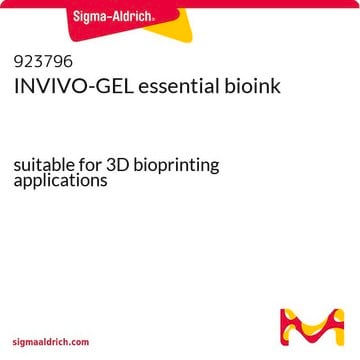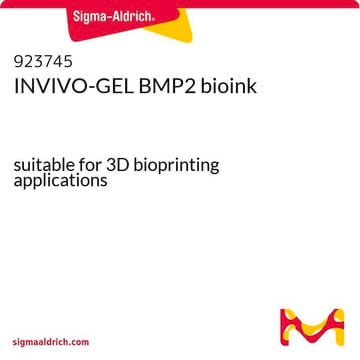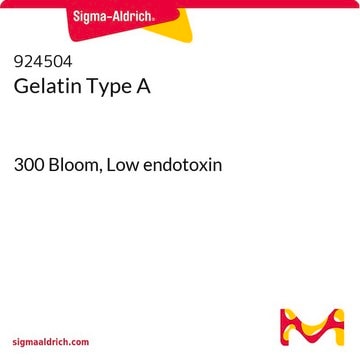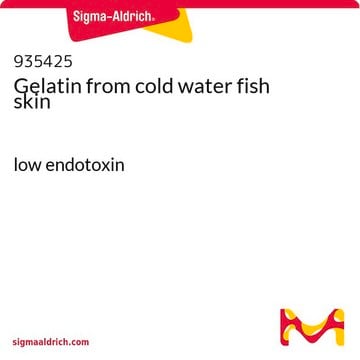915211
Lifeink® 240
acidic type I collagen bioink, 35 mg/mL
Synonyme(s) :
3D Bioprinting, Bioink, Collagen
About This Item
Produits recommandés
Niveau de qualité
Stérilité
sterile; sterile-filtered
Forme
viscous liquid
Concentration
30-40 mg/mL (Collagen concentration)
35 mg/mL
Impuretés
≤10 EU/mL Endotoxin
Couleur
colorless
pH
3.0-5.0
Température de stockage
2-8°C
Application
Informations légales
Mention d'avertissement
Warning
Mentions de danger
Conseils de prudence
Classification des risques
Met. Corr. 1
Code de la classe de stockage
8A - Combustible corrosive hazardous materials
Classe de danger pour l'eau (WGK)
WGK 1
Faites votre choix parmi les versions les plus récentes :
Certificats d'analyse (COA)
Vous ne trouvez pas la bonne version ?
Si vous avez besoin d'une version particulière, vous pouvez rechercher un certificat spécifique par le numéro de lot.
Déjà en possession de ce produit ?
Retrouvez la documentation relative aux produits que vous avez récemment achetés dans la Bibliothèque de documents.
Notre équipe de scientifiques dispose d'une expérience dans tous les secteurs de la recherche, notamment en sciences de la vie, science des matériaux, synthèse chimique, chromatographie, analyse et dans de nombreux autres domaines..
Contacter notre Service technique









